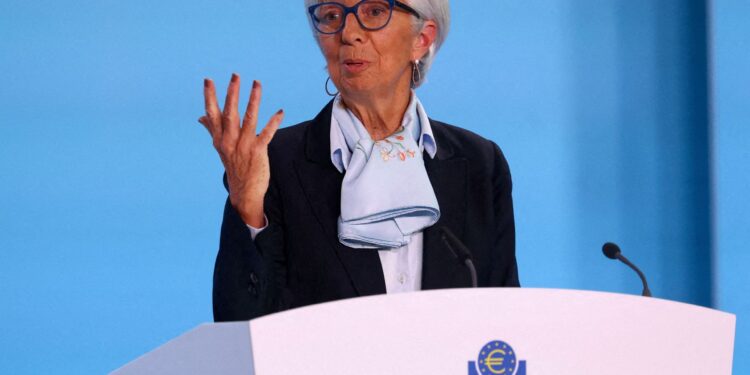6/6/2024–|Last updated: 6/6/202406:22 PM (Mecca time)
Today, Thursday, the European Central Bank lowered interest rates for the first time in 5 years, but did not give any hints about its next step, given the increasing uncertainty surrounding the path of inflation after a sharp slowdown last year.
The European Central Bank reduced the standard interest on deposits by 25 basis points to 3.75%, joining the central banks in Canada, Sweden, and Switzerland, which began abandoning the high interest rate policy that they were forced to adopt to control inflation after the Corona pandemic.
Today’s decision is seen as the start of a cycle of monetary easing, but price pressures are clouding the outlook and may force the euro zone central bank to wait months before cutting rates again.
The European Central Bank said – in a statement – that “the Governing Council continues to follow a data-driven approach and take decisions on a meeting-by-meeting basis to determine the appropriate level and duration of restrictions.”
While the European Central Bank kept its options open for next July, a group of influential policymakers, including Governing Council member Isabel Schnabel and Dutch Central Bank President Klaas Knot, called for interest rates to be temporarily fixed next month, indicating that the next opportunity for monetary easing will be September. Next September.
Price pressures
Speaking after the decision, European Central Bank President Christine Lagarde said – in a press conference – that inflation had declined enough for the central bank to begin lowering interest rates. But with euro zone inflation expected to remain above the European Central Bank’s 2% target next year, Lagarde declined to say how fast or deep any future interest rate cuts would be.
She said: “Price pressures have weakened, and inflation expectations have declined on all horizons,” and added: “We will keep interest rates sufficiently restricted as long as that is necessary to achieve this goal… We are not committed to a specific price path.”
Analysts say today’s quarter-point rate cut is unlikely to lead to a rapid series of further cuts, as the European Central Bank waits to make sure inflation is under control. Although May’s annual inflation rate of 2.6% is well below its peak of 10.6% in October 2022, the decline has slowed in recent months. The inflation rate rose slightly from 2.4% last April.
Inflation in services sectors, a broad category that includes everything from medical care and haircuts to hotels, restaurants and concert tickets, remains particularly high at 4.1%.
Experts expect two more cuts to European interest rates this year, most likely in September and December, while markets expect one or two additional cuts, in a significant change from expectations at the beginning of the year when more than 5 cuts were expected.



